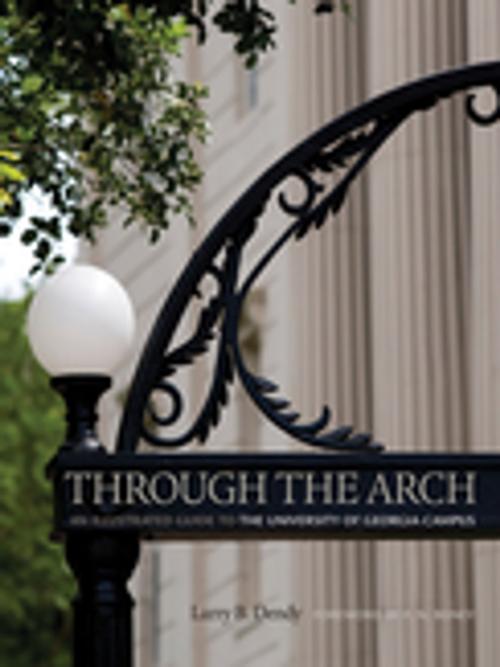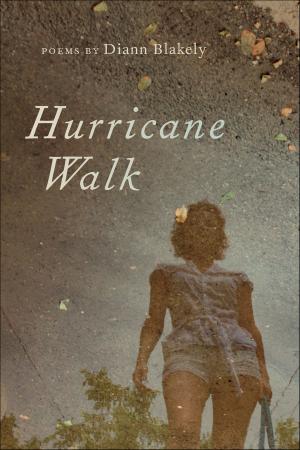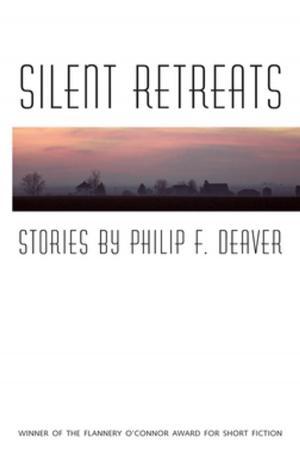Through the Arch
An Illustrated Guide to the University of Georgia Campus
Nonfiction, Reference & Language, Education & Teaching, History, Higher Education, Americas, United States| Author: | Larry Dendy | ISBN: | 9780820345062 |
| Publisher: | University of Georgia Press | Publication: | September 15, 2013 |
| Imprint: | University of Georgia Press | Language: | English |
| Author: | Larry Dendy |
| ISBN: | 9780820345062 |
| Publisher: | University of Georgia Press |
| Publication: | September 15, 2013 |
| Imprint: | University of Georgia Press |
| Language: | English |
Through the Arch captures UGA’s colorful past, dynamic present, and promising future in a novel way: by surveying its buildings, structures, and spaces. These physical features are the university’s most visible—and some of its most valuable—resources. Yet they are largely overlooked, or treated only passingly, in histories and standard publications about UGA.
Through text and photographs, this book places buildings and spaces in the context of UGA’s development over more than 225 years. After opening with a brief historical overview of the university, the book profiles over 140 buildings, landmarks, and spaces, their history, appearance, and past and current usage, as well as their namesake, beginning with the oldest structures on North Campus and progressing to the newest facilities on South and East Campus and the emerging Northwest Quadrant. Many profiles are supplemented with sidebars relating traditions, lore, facts, or alumni recollections associated with buildings and spaces.
More than just landmarks or static elements of infrastructure, buildings and spaces embody the university’s values, cultural heritage, and educational purpose. These facilities—many more than a century old—are where students learn, explore, and grow and where faculty teach, research, and create. They harbor the university’s history and traditions, protect its treasures, and hold memories for alumni. The repository for books, documents, artifacts, and tools that contain and convey much of the accumulated knowledge and wisdom of human existence, these structures are the legacy of generations. And they are tangible symbols of UGA’s commitment to improve our world through education.
Guide includes
113 color photos throughout 19 black-and-white historical photos Over 140 profiles of buildings, landmarks, and spaces Supplemental sidebars with traditions, lore, facts, and alumni anecdotes 6 maps
Through the Arch captures UGA’s colorful past, dynamic present, and promising future in a novel way: by surveying its buildings, structures, and spaces. These physical features are the university’s most visible—and some of its most valuable—resources. Yet they are largely overlooked, or treated only passingly, in histories and standard publications about UGA.
Through text and photographs, this book places buildings and spaces in the context of UGA’s development over more than 225 years. After opening with a brief historical overview of the university, the book profiles over 140 buildings, landmarks, and spaces, their history, appearance, and past and current usage, as well as their namesake, beginning with the oldest structures on North Campus and progressing to the newest facilities on South and East Campus and the emerging Northwest Quadrant. Many profiles are supplemented with sidebars relating traditions, lore, facts, or alumni recollections associated with buildings and spaces.
More than just landmarks or static elements of infrastructure, buildings and spaces embody the university’s values, cultural heritage, and educational purpose. These facilities—many more than a century old—are where students learn, explore, and grow and where faculty teach, research, and create. They harbor the university’s history and traditions, protect its treasures, and hold memories for alumni. The repository for books, documents, artifacts, and tools that contain and convey much of the accumulated knowledge and wisdom of human existence, these structures are the legacy of generations. And they are tangible symbols of UGA’s commitment to improve our world through education.
Guide includes
113 color photos throughout 19 black-and-white historical photos Over 140 profiles of buildings, landmarks, and spaces Supplemental sidebars with traditions, lore, facts, and alumni anecdotes 6 maps















